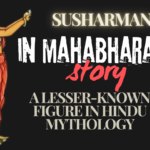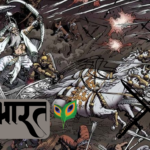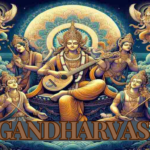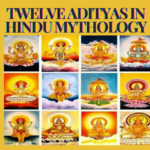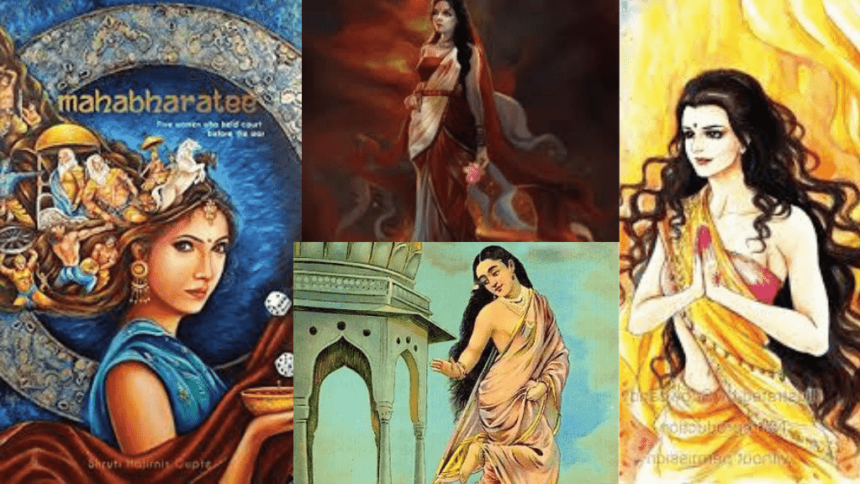Hinduism, one of the oldest religions in the world, is richly woven with mythology, rituals, and an array of gods and goddesses. Among the deities, the goddesses hold paramount significance, symbolizing various aspects of life, nature, and spirituality. In this blog post, we delve into the divine feminine power encapsulated in Hinduism, exploring significant goddesses like Parvati, Lakshmi, and Saraswati, along with the diverse practices of goddess worship across India.
Devi: The Ultimate Goddess.
In Hinduism, Devi represents the supreme and ultimate goddess, embodying the divine feminine energy known as Shakti. Shakti is believed to be the source of creative power and is worshipped in many forms across different regions in India. Each form of Devi encompasses unique traits and powers, overseeing various aspects of life, from wealth and knowledge to strength and compassion.
The Many Faces of Devi.
1. Parvati: The Mother Goddess.
Parvati, the consort of Lord Shiva, is revered as the goddess of love, fertility, and devotion. She embodies the nurturing and gentle aspects of motherhood, often depicted with her children, Ganesha and Kartikeya. Parvati is also worshipped in her fierce forms like Durga and Kali, showcasing her ability to vanquish evil and protect righteousness.
Devotees celebrate her during festivals like Navratri and Durga Puja, with elaborate rituals and vibrant processions.
Is Parvati mother nature?
In Hinduism, Goddess Parvati is viewed as the exemplification of the earth and is frequently alluded to as “Mother Earth” or “Bhumi Devi.” She is supposed to be the wellspring of all life and sustenance and is answerable for the fruitfulness of the land.
2. Lakshmi: The Goddess of Wealth.
Lakshmi, the goddess of wealth, prosperity, and fortune, is a household name in India. She is the consort of Lord Vishnu and is depicted adorned with gold and lotuses, showering blessings of abundance. Diwali, the Festival of Lights, is one of the major festivals dedicated to her, where devotees light lamps and offer prayers to invite prosperity into their homes.
Stories about Lakshmi’s benevolence and righteousness often inspire moral conduct and financial responsibility among her followers.
How to please goddess Lakshmi for wealth?
Goddess Lakshmi sure comes to your place. Lotus addresses virtue and riches. You can keep lotus rosary in your pooja ghar and serenade Goddess Lakshmi mantra to make your heart loaded up with virtue, love and generosity.
Which is Laxmi mantra for money?
“Om Shreem Mahalakshmiyei Namaha” Summons Goddess Lakshmi, the god of riches, flourishing, and overflow. Reciting this mantra is accepted to bring monetary success and material riches.
3. Saraswati: The Goddess of Knowledge.
Saraswati, the goddess of knowledge, wisdom, music, and arts, is venerated by students, artists, and scholars alike. She is often depicted with a veena (a musical instrument), a book, and a swan, symbolizing mastery over knowledge and the arts. Saraswati Puja, also known as Vasant Panchami, marks the celebration of her blessings, where schools and educational institutions perform special rituals.
Her serene demeanor inspires a devotion to learning and intellectual pursuits.
Why Saraswati is called goddess of knowledge?
Today, Saraswati is generally loved as the Goddess of information since her imaginative power and her job as Vak, prompting her relationship with the Incomparable reality in this way the genuine information. As Goddess Saraswati, she remains importance in present day and is a lot of prevalently loved then Brahma.
Regional Variations in Goddess Worship.
India’s cultural diversity is reflected in the myriad forms of goddess worship practiced across different states. From the fierce Kali in West Bengal to the benevolent Meenakshi in Tamil Nadu, each region has its unique traditions and stories.
Kali: The Fierce Protectress.
Kali, revered predominantly in Bengal, is the fierce aspect of Parvati. She is depicted in a terrifying form, with a garland of skulls and a protruding tongue, symbolizing the destruction of evil forces. Kali Puja coincides with Diwali in Bengal, where devotees offer prayers and sacrifices to seek her protection and blessings.
Who is fierce goddess Kali?
She is the Kali of death, obliteration and is adored by tantrics. As Samhara Kali she gives passing and freedom. As per the Mahakala Samhita, Samhara Kali is two equipped and dark in coloring. She remains on a body and holds a newly sliced head and a plate to gather the trickling blood.
Meenakshi: The Warrior Goddess.
Meenakshi, worshiped in Tamil Nadu, is known for her valor and beauty. The Meenakshi Temple in Madurai stands as a testament to her greatness, attracting thousands of devotees and tourists every year. The annual Meenakshi Tirukalyanam festival, celebrating her divine marriage to Lord Sundareswarar (Shiva), is a grand spectacle of devotion and cultural heritage.
What is the story of Meenakshi?
Meenakshi grew up to be a fearless and strong ruler. During her rule, she left on a tactical endeavor and vanquished different realms. It was during one of these triumphs that she met Ruler Shiva, and after seeing him, her third bosom vanished, showing that he was her foreordained spouse.
Modern Interpretations and Practices.
In contemporary times, goddess worship in Hinduism has transcended traditional rituals to include modern interpretations of feminism, empowerment, and social justice. Many women draw inspiration from the goddesses’ strength and resilience, finding parallels with their own lives.
- Women empowerment initiatives often invoke the spirit of goddesses to inspire confidence and leadership.
- Art and literature frequently reinterpret mythological stories to highlight the relevance of goddesses in today’s world.
- Social media campaigns during festivals like Navratri and Diwali promote cultural awareness and spiritual connection.
The goddess worship in Hinduism is a profound testament to the religion’s recognition of the divine feminine power. Whether through Parvati’s nurturing role, Lakshmi’s prosperity, Saraswati’s wisdom, or the myriad regional deities, the goddesses embody virtues that resonate deeply with their devotees. The stories, rituals, and modern interpretations create a rich tapestry that continues to inspire and guide millions.
Embracing the goddess in Hinduism is to recognize the strength, compassion, and creativity that lie within the divine feminine, celebrating a legacy that has withstood the test of time and continues to evolve.
